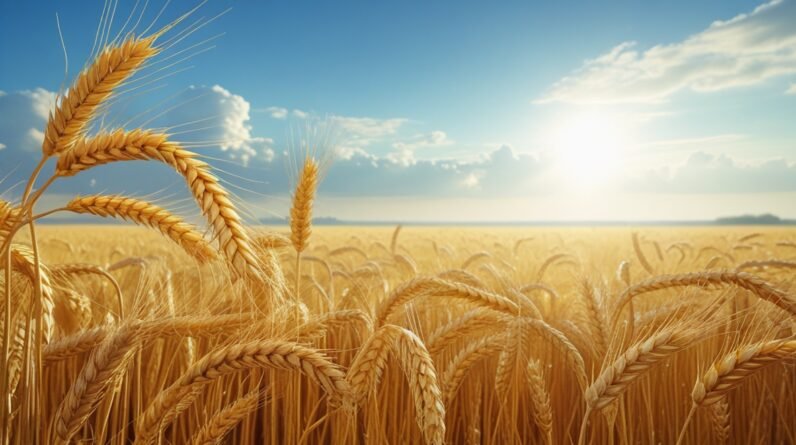Stories Of God’s Provision In The Bible
You’re about to walk through five vivid, faith-building episodes from Scripture that show how God provides—often in surprising ways and always with purpose. These narratives are not just ancient history; they’re living lessons for your daily life. In this article, you’ll read 5 Inspiring Stories of God’s Provision in the Bible that will strengthen your faith, sharpen your hope, and help you recognize God’s hand in the middle of uncertainty.
Why these stories still matter to you
When you read the Bible, you don’t just read facts—you meet a God who interacts with real people facing real needs. Each story below gives you a glimpse of God’s character: His creativity, faithfulness, timing, and invitation for you to trust. These five narratives are selected because they are practical models of provision—God meeting needs materially, emotionally, and spiritually. As you move through each account, you’ll see patterns you can apply when you’re waiting, worried, or wondering how God will come through.
1. Manna in the Wilderness (Exodus)
What happened
When the Israelites left Egypt, they faced the wilderness with fear and hunger. Their immediate needs were real: food and guidance. God responded by sending manna—daily bread that appeared on the ground each morning. The people were told to gather what they needed for the day, and on the sixth day, to gather twice as much so they’d have rest on the Sabbath. God provided not only sustenance but also a rhythm of dependence and trust: one day at a time. You can read the account and God’s instructions in Exodus 16:4-5 (NIV).
What it means for you
This story speaks directly to your seasons of scarcity and anxiety. When provision seems scarce, God may be shaping you to rely on Him daily rather than hoard or panic. The manna teaches you to trust God for daily provision and to respect the rest He ordains. If you struggle with planning or obsessing about future needs, remember the discipline God taught Israel: gather for today, trust Him for tomorrow. The lesson is practical—God cares about your physical needs—and spiritual—He invites you into trust.
(Use of the phrase 5 Inspiring Stories of God’s Provision in the Bible reinforces that these narratives are intended to strengthen your faith as you read and apply them.)
2. Elijah Fed by Ravens (1 Kings)
What happened
In a time of drought and judgment, God commanded the prophet Elijah to hide by the Kerith Ravine. There, instead of human delivery or visible supply lines, God used ravens to bring Elijah bread and meat morning and evening, and he drank from the brook. Later, when the brook dried up, God redirected Elijah to the widow at Zarephath—another provision story that flows from this first miracle. Read the initial provision in 1 Kings 17:2-6.
What it means for you
This account reassures you that God can use the most unexpected sources to provide for you. When human options dry up, God’s supply chain isn’t broken—He’s creative. You may be waiting on a promotion, a relationship, or healing. This story reminds you that God often provides in ways you wouldn’t plan or predict. If you’re tempted to despair because the “normal” ways of provision are gone, remember Elijah and the ravens: God can and will bring what you need, sometimes through surprising means.
(Here again, reading 5 Inspiring Stories of God’s Provision in the Bible can encourage you to expect the unexpected from God.)
3. The Widow of Zarephath and Elijah (1 Kings)
What happened
Elijah was sent to Zarephath during the drought, where a widow was gathering sticks and preparing a final meal for herself and her son. Elijah asked her to make him something to eat first. Though she had only a small jar of flour and a little oil, she obeyed Elijah’s request. Miraculously, the jar of flour and the jug of oil did not run out until the drought ended. This miracle is recorded in 1 Kings 17:8-16.
What it means for you
This story teaches you about sacrificial faith and divine multiplication. The widow’s act was not merely brave; it was an act of faith that opened the door for God’s miraculous provision. When you give from what little you have—time, money, energy—God can multiply it in ways you can’t foresee. This principle applies to generosity, ministry, and daily living. Your obedience, even when resources are scarce, positions you to receive God’s multiplication.
(As you study 5 Inspiring Stories of God’s Provision in the Bible, notice how God often asks people to act first in faith before He reveals the full scale of His provision.)
4. Elisha and the Widow’s Oil (2 Kings)
What happened
A widow of one of the prophets came to Elisha in desperation because creditors were coming to take her sons as slaves to pay a debt. Elisha asked her what she had—only a little oil. He instructed her to borrow empty jars from her neighbors, go inside, and pour her oil into the jars. As she poured, the oil kept flowing until every jar was filled. She sold the oil, paid the debt, and had enough to live on. You can read the full passage at 2 Kings 4:1-7.
What it means for you
This narrative moves you from fear to hope through obedience and ingenuity. It shows that God can transform a single, small resource into enough for your needs and beyond. The steps were simple—recognize the resource, act in faith, involve your community (borrow jars), and watch God multiply. For your life, this might mean taking small, obedient steps in stewardship, community engagement, or ministry and trusting God to multiply those small beginnings into sufficient provision.
(Reflecting on 5 Inspiring Stories of God’s Provision in the Bible can help you see how God multiplies what you bring to Him in humble, practical ways.)
5. Feeding of the 5,000 (John / the Gospels)
What happened
One of the most famous miracles of Jesus is the feeding of the 5,000. Crowds had gathered to hear Him teach, and by late afternoon, they were hungry. A boy offered five loaves and two fish. Jesus took what was offered, gave thanks, broke the bread, and gave it to the disciples to distribute. The food multiplied so that everyone ate and was satisfied, and there were twelve baskets of leftovers. See the Gospel account in John 6:1-14. The parallel accounts in Matthew, Mark, and Luke also recount this miracle if you want a fuller view.
What it means for you
This miracle captures the heart of how Jesus works: He takes what you give, blesses it, and multiplies it beyond expectation. The boy’s small offering became more than enough—not because of the quantity, but because of Jesus’ blessing and power. For your life, the message is clear: don’t despise small beginnings. Bring your little—your time, talent, or treasure—to Jesus, and He will make it sufficient. This story also speaks to your responsibility: the disciples distributed the food. God often multiplies through your willingness to participate.
(As you consider 5 Inspiring Stories of God’s Provision in the Bible, notice the recurring theme: God uses simple acts of faith to release supernatural provision.)

Patterns you’ll see in these accounts
God provides in ways that build your faith
Across these five stories, you’ll observe a divine pattern: God provides to build faith, not just to solve an immediate problem. Each provision invited the recipient to trust, obey, or share. That process shapes your character as much as it meets your needs. Whether it’s daily manna teaching you dependence, or Jesus multiplying loaves and fish to inspire generosity and trust, God’s provision always has a purpose beyond the immediate supply.
God uses ordinary things and ordinary people
You’ll also see that God’s supply often comes through the ordinary—a boy’s lunch, a widow’s jar of oil, ravens, or daily bread. This should encourage you: God can work through what you already have and through people you might overlook. When you feel inadequate, remember that God’s power is made perfect in weakness.
(Refer back to 5 Inspiring Stories of God’s Provision in the Bible to trace these patterns and let them inform your expectations.)
How these stories shape your response
Trust over worry
When you internalize these narratives, your primary response should shift from anxiety to trust. The Scriptures don’t promise a trouble-free life, but they do demonstrate a faithful God who meets needs. When worry rises, recall these stories and rehearse God’s past faithfulness. As Philippians 4:19 assures, God will meet your needs according to His glory in Christ Jesus.
Obedience over entitlement
You aren’t guaranteed blessings without obedience. The widow of Zarephath and the widow of Elisha both acted when instructed. Their obedience positioned them for provision. So your posture should be one of humility and willingness to do what God asks, even when it seems costly. That’s a spiritual posture that invites God’s multiplication.
Generosity over hoarding
The feeding of the 5,000 and the widow’s offering teach that generosity is a vehicle of provision. When you give—in faith and with a willing heart—you create channels through which God can bless others and multiply resources. That’s a Biblical rhythm: provision creates generosity, and generosity creates more provision.
(Thinking through 5 Inspiring Stories of God’s Provision in the Bible will help you form practical habits: thankful dependence, obedient action, and generous living.)
Practical steps to recognize God’s provision today
1. Keep a provision journal
Write down instances where God has met your need—big or small. Over time, this record will strengthen you when current worries resurface. You’ll have a living testimony of God’s faithfulness.
2. Start small and act
If God asks something of you—whether it’s to give, to forgive, or to serve—start with what’s in your hand. The boy’s lunch and the widow’s oil started small; your first faithful step often initiates multiplication.
3. Involve your community
Just like the widow borrowed jars from neighbors and the disciples distributed bread, involve others in God’s work. Provision often flows through relationships, not isolation.
4. Pray specifically
Don’t pray vaguely. Ask God for specific provision and be ready to act. If you pray about finances, health, or relationships, attach faith-filled actions (budgeting, doctor visits, reconciliation) to your prayer.
5. Remember Sabbath trust
Manna taught Israel to gather for today and trust for tomorrow. Embrace rhythms of rest that express confidence in God’s care rather than frantic effort to control every outcome.
(These practical steps are inspired by the same lessons you read in 5 Inspiring Stories of God’s Provision in the Bible and help you apply ancient principles today.)
Common questions people ask about God’s provision
What if God doesn’t provide when I expect it?
Scripture shows God’s timing isn’t always your timing. Elijah waited by the brook, then God redirected him. Waiting is part of growth. Use the wait to pray, prepare, and obey. Sometimes God’s “delay” is His way of expanding your faith or reshaping your heart.
Does provision always mean material blessing?
No. Provision can be emotional peace, wisdom, spiritual growth, or a changed heart. While God certainly meets physical needs, His ultimate provision is the gospel—reconciliation with Him through Jesus. Keep an expansive view of what “provision” might mean in your life.
How do I tell the difference between legitimate need and testing?
God’s provision often arrives in practical ways that encourage reliance. Testing refines faith; God rarely tempts you to sin. If a situation calls you to obedience, sacrifice, and trust, it likely fits the pattern of Biblical provision where God invites your cooperation.
(Refer back occasionally to 5 Inspiring Stories of God’s Provision in the Bible as you wrestle with these questions—these narratives function as guides and witnesses to God’s character.)

A pastoral encouragement for your journey
You’re not alone in your need. The same God who fed the Israelites, fed Elijah in the wilderness, multiplied a widow’s oil, and multiplied loaves for thousands—He is with you. Lean into the promises recorded for you in Scripture. Let these stories do what they’re meant to do: build your faith, guide your trust, and inspire your action.
As you reflect, ask yourself: What small thing is God asking you to offer? What step of obedience might position you to receive His multiplication? Remember that God’s provision often arrives through ordinary people and ordinary acts done in obedience.
(Keep revisiting the truth encapsulated by the phrase 5 Inspiring Stories of God’s Provision in the Bible—to rehearse God’s faithfulness in your own life.)
Closing summary
These five stories—manna in the wilderness (Exodus 16:4-5), Elijah fed by ravens (1 Kings 17:2-6), the widow of Zarephath (1 Kings 17:8-16), Elisha and the widow’s oil (2 Kings 4:1-7), and the feeding of the 5,000 (John 6:1-14)—show a faithful God who provides in ways that build trust, invite obedience, and multiply what you bring Him. These narratives are not ancient curiosities; they’re active lessons for your life today.
Read them, pray through them, and take one practical step of obedience this week. Let these accounts of God’s provision encourage you when resources are low and teach you how to live in gratitude and faith when God supplies.
Explore More
For further reading and encouragement, check out these posts:
👉 7 Bible Verses About Faith in Hard Times
👉 Job’s Faith: What We Can Learn From His Trials
👉 How To Trust God When Everything Falls Apart
👉 Why God Allows Suffering – A Biblical Perspective
👉 Faith Over Fear: How To Stand Strong In Uncertain Seasons
👉 How To Encourage Someone Struggling With Their Faith
👉 5 Prayers for Strength When You’re Feeling Weak

📘 Jesus and the Woman Caught in Adultery – Grace and Mercy Over Judgement
A powerful retelling of John 8:1-11. This book brings to life the depth of forgiveness, mercy, and God’s unwavering love.
👉 Check it now on Amazon
As a ClickBank & Amazon Affiliate, I earn from qualifying purchases.
Acknowledgment: All Bible verses referenced in this article were accessed via Bible Gateway (or Bible Hub).
“Want to explore more? Check out our latest post on Why Jesus? and discover the life-changing truth of the Gospel!”








